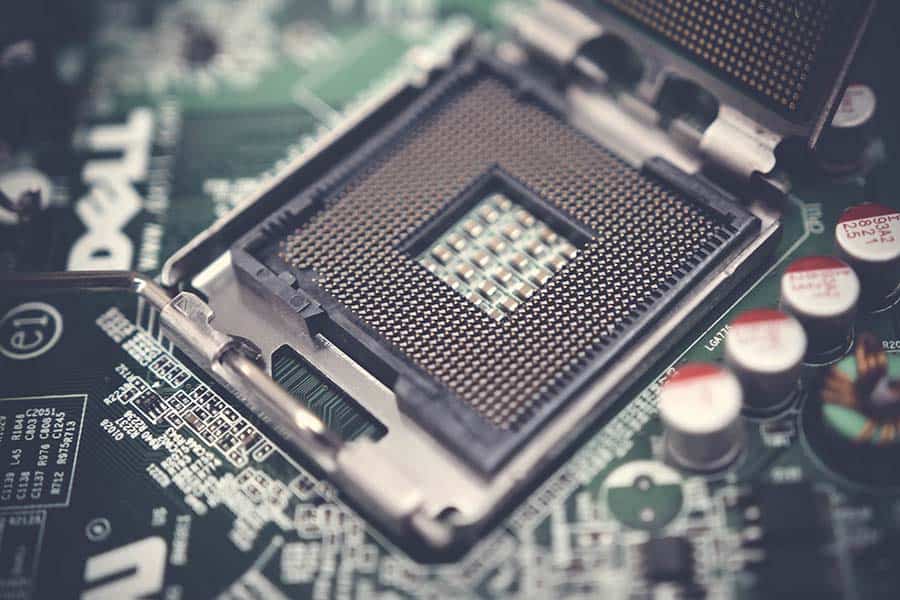Today, laptops are more than just a computer you can carry around conveniently. They boast advanced processing power, amazing cameras that capture crisp photos, and even camera software that rivals the best smartphone apps. In short, they’re everything we ever wanted in a computer. That said, your laptop’s processor plays a huge role in determining its performance and longevity. You see, processors have an important job – helping your computer manage multiple tasks at the same time without getting overwhelmed. The type of processor in your laptop determines how quickly it processes information and how much work it can handle simultaneously. If you want to get the most out of your laptop and extend its lifespan, changing your processor is essential.
Can you change the processor on a laptop?
In short, yes you can change the processor in a laptop, but it is not recommended unless you are an experienced technician. The processor is one of the most important parts of a laptop, and changing it can be very difficult. It is also important to note that changing the processor will void your warranty.
Why You Should Change Your Laptops Processor
- Improves performance
The processor is a very crucial part of your laptop. It is responsible for the CPU, which is the brain of your laptop. The CPU manages multiple tasks at once and carries out complex functions such as processing data, managing memory, and controlling the operating system. Without a good processor, you won’t have any performance or functionality.
- Increases battery life
The processor also plays a role in determining how long your laptop will last on a single charge. A weak processor can drain your battery faster than usual, which means you will have to recharge it sooner than expected. You should change your processor if it drains your battery too quickly or you experience frequent crashes while using it.
- Increases devise security
Your laptop’s processor determines how secure it is and how much privacy you can expect from it when used online (such as in banking). If there are vulnerabilities in the chip that are unaddressed, hackers may be able to access sensitive information stored in your computer or even steal personal information from personal accounts that may be connected to your devices such as email accounts and social media profiles (such as Facebook). 4. Improves performance of some applications
Some applications require more processing power than others to work effectively; therefore, if you have a poor-performing chip installed on your computer then certain applications might not work properly or run slowly until you get them updated with new software from the manufacturer’s website or through an authorized repair center.
- Allows for more advanced features
If you have a weak processor installed on your laptop, then you may not be able to use certain features that your laptop was designed to do. For example, if you have a weak processor installed on your device then you will not be able to enjoy more advanced features such as video playback with HD video support. Furthermore, if the chip is weak then it may also affect the battery life of your device.
How To Change Your Laptops Processor?
- Shut down your laptop.
- Remove the battery and/or AC adapter from your laptop.
- Disconnect any external devices connected to your laptops, such as speakers and flash drives, before removing the screws from the bottom of your laptop.
- Remove the screws from the sides of your laptop to reveal its interior components, such as its motherboard, memory modules, and hard drive(s).
- Unplug all cables that are attached to your motherboard (such as USB ports).
- Replace any damaged parts with new ones that are compatible with your model of computer (such as a processor), or use tools available at an authorized repair center in order to install new parts (such as a processor) on your device yourself if you do not have access to an authorized repair center or if you would prefer not to pay for these repairs yourself.
- Reconnect all cables that were disconnected in step 4 and then close up each side of your computer again so that you can use it again immediately after you finish installing a new processor on it.
- Reinstall the battery back into its slot inside of the computer case and make sure that everything is working properly before turning on your laptop again.
How To Check If You Need To Change Your Processor?
- Check to see if your laptop is operating properly by running a virus scan and/or a boot disk check.
- Power on your laptop and run a virus scan (if you have not already done so) in order to track down any viruses that might be affecting it.
- Power on your laptop and run a boot disk check in order to determine whether or not your computer is running properly.
- If you are experiencing an issue with one of the above steps, then you may need to change your processor or install new hard drive(s) or other internal components in order for your device to work properly again.
How To Find The Right Processor For Your Laptop?
- Look for a processor that is compatible with your models of laptop, such as AMD or Intel.
- Look for a processor that has your desired amount of cores and threads.
- If you are planning to use a current generation of the newest technology, such as Intel’s latest 9th Gen (Coffee Lake) processors, then look for those that have the features you need such as Turbo Boost Max 3.0, and are supported by your motherboard.
- If you are looking to install a new processor on your computer which is older than 6 years old, then it may be best to choose an older processor that does not require more than 4 cores and threads in order to get the most performance out of it.
- Look for an upgrade kit if you want to replace all of your components at once rather than replacing parts one by one.
- Investigate whether or not there are any additional features you will need or whether or not they are already built into newer processors like greater amounts of cache memory (CPU cache) and/or higher speeds.
Conclusion
Choosing the right processor can make a big difference in how your laptop functions. If your laptop is slowing down or you notice that it is not as powerful as it used to be, it might be time to change your processor. To do this, you’ll need to find out what processor your laptop came with originally. Then, you’ll want to locate a processor that is powerful enough to handle your laptop’s needs. Make sure you check the motherboard and RAM to make sure the processor will fit in your laptop. Once you do, you can experience the full power of your laptop again. In fact, you may even find that your laptop outperforms the laptop you bought a few years ago.


